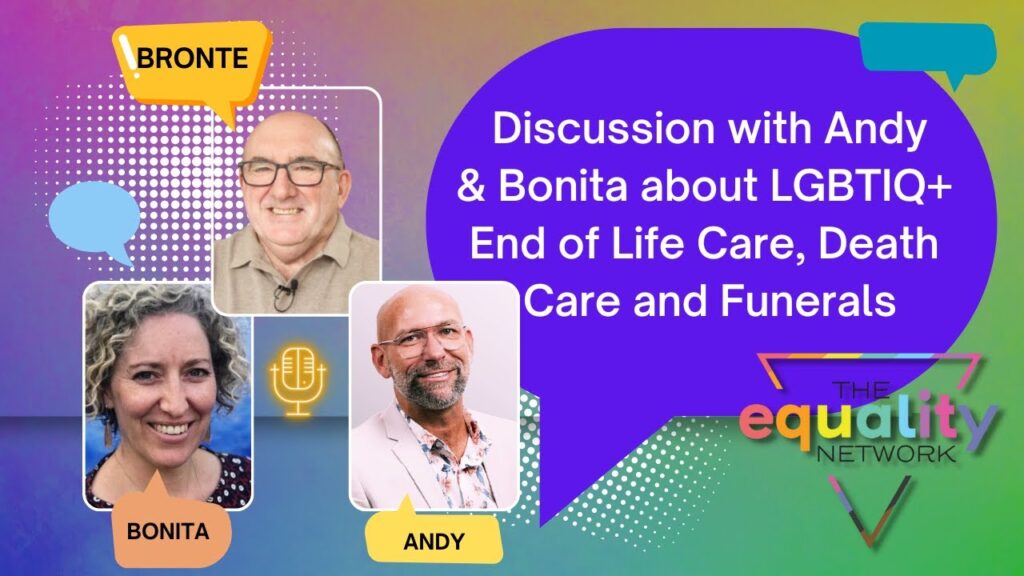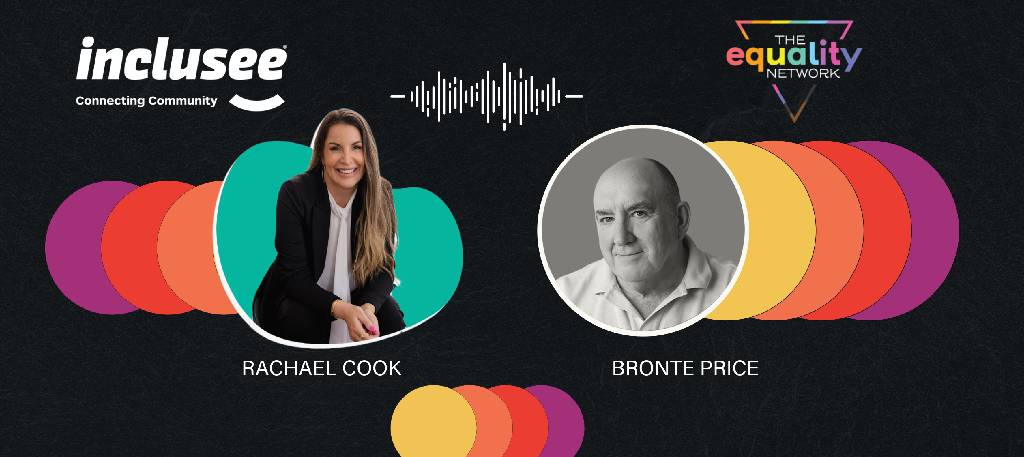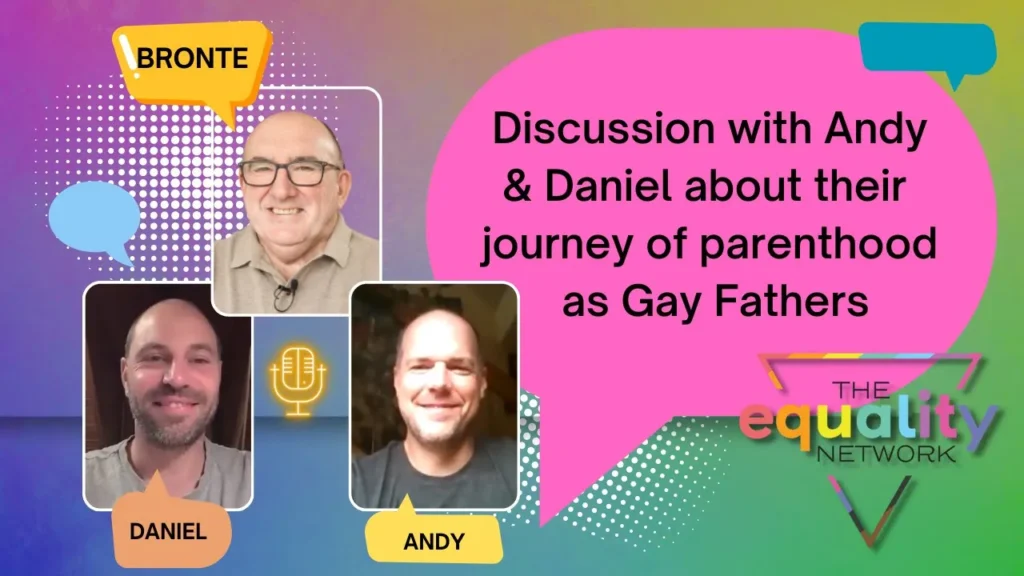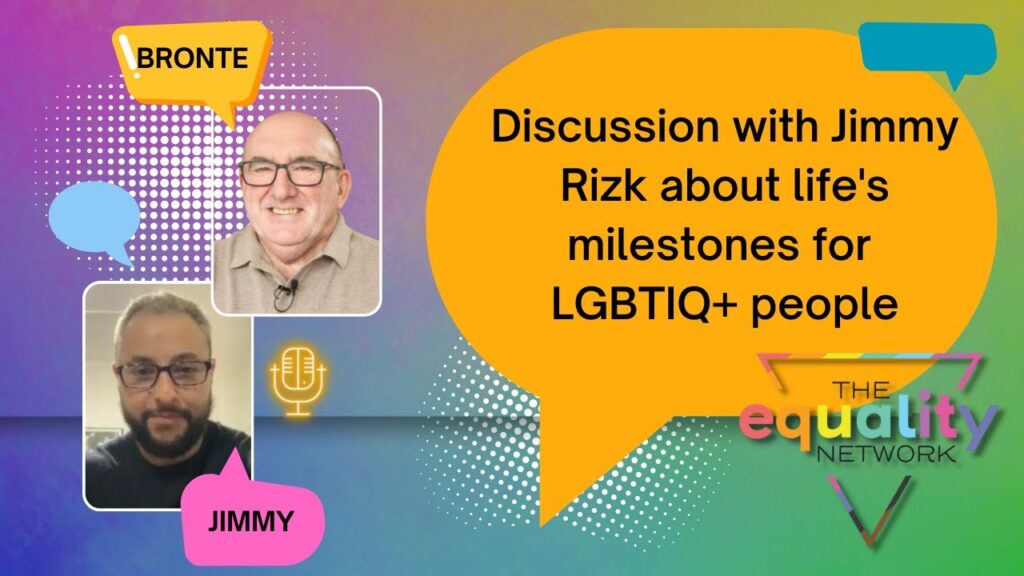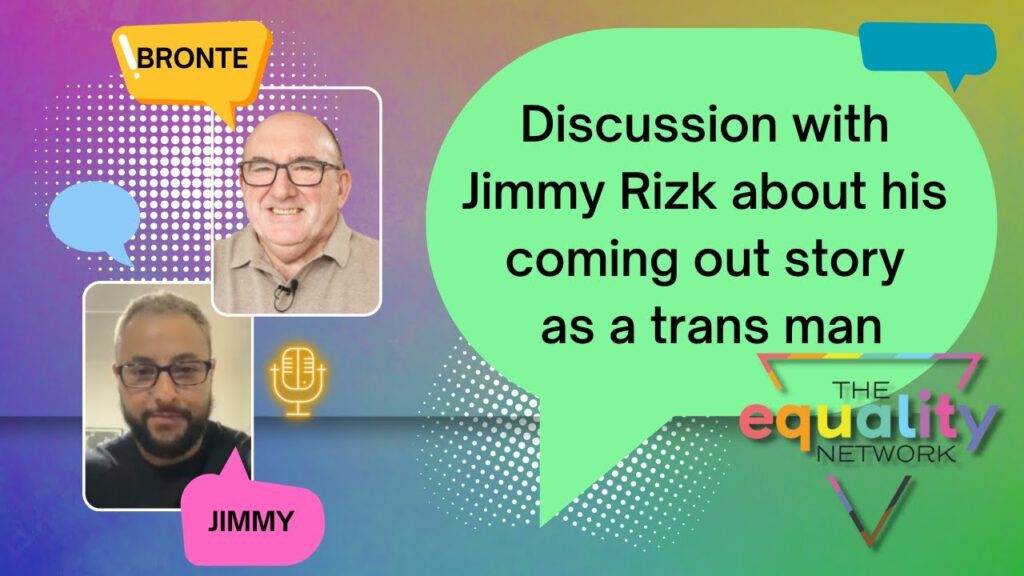Discussion with Evan Fowler on Navigating Pronouns in the Workplace

Join us in this enlightening conversation as Bronte Price sits down with Evan Fowler—a photographer, business owner, and drag queen. They explore the significance of pronouns, workplace inclusivity, and the power of safe spaces.
From personal experiences to broader societal shifts, this dialogue celebrates diversity, challenges norms, and fosters empathy. Whether you’re cisgender or not, understanding pronouns matters. Let’s create a world where everyone feels seen and respected.
The interview meanders across the following discussion areas:
- Pronouns Matter: Understanding and respecting pronouns is crucial, especially for trans and gender-diverse individuals.
- Safe Spaces: Working in a queer-friendly environment, like a gay bar, allows playful exploration of pronouns without fear of judgment.
- Inclusive Workplaces: Displaying names and pronouns on uniforms fosters workplace inclusivity. Gender-neutral bathrooms are essential too.
- Technology and Progress: Communication and technology continue to evolve rapidly, impacting discussions about pronouns.
- Empathy and Acceptance: Let’s create a world where everyone feels seen, respected, and valued, regardless of their pronouns or identity.
- Personal Journey: Evan’s experience—from shyness to confidence—was shaped by drag queens and pioneers of queerness.
- Celebrating Diversity: This dialogue celebrates diversity, challenges norms, and promotes empathy. Join the conversation!
Transcript of interview with Evan Fowler hosted by Bronte Price
Bronte: Hi, I’m Bronte Price. I’m a CIS guy and the founder of the Equality Network. Welcome to yet another safe space chat. Today, we’re having a conversation with Evan about the use of pronouns, particularly in the workplace.
Pronouns are words we use in place of someone’s name. We rely on them numerous times each day. Most of us learned our pronouns as part of our early speech patterns. Traditionally, if you were assigned female at birth, your pronouns were “she” and “her.” If you were assigned male at birth, your pronouns were “he” and “him.” However, these pronouns overlook a couple of important things.
Firstly, not everyone assigned male or female at birth was actually assigned the correct sex. Secondly, not everyone neatly fits into the binary terms of “female” and “male.” Some people don’t identify exclusively as either gender. Non-binary individuals, as well as those who are gender diverse or gender fluid, find it challenging to fit into these predefined labels created by society.
Now, let’s hear from Evan. Evan, please introduce yourself.
Evan: Hey, everybody! I’m Evan Fowler, a photographer based in Melbourne. I’m years old and also a business owner. I manage my family’s bathroom renovations business and drive for Uber. Oh, and I’m a drag queen too! Currently, I’m figuring out my non-binary identity. So, that’s me!
And about pronouns—well, you can call me whatever you want. Just don’t call me late for dinner! But seriously, in the workplace, I have ongoing discussions with my staff. I don’t like being called “boss.” We’re collaborators, not boss and employees. I’m not here to save money for a gold toilet—I want everyone to grow, learn, and thrive. So, no need for fancy titles; let’s just work together!
Evan: Um, it’s getting tricky these days with customers. You know, don’t gender customers—it’s just bloody annoying sometimes. It’s in your face all the time. I’ve also started studying my master’s in Photography. At the new university I’ve joined, there’s one gender-neutral toilet. But it’s always busy and occupied—it’s a disability toilet and a baby change room. The male and female toilets are busier, and the male one has “male” written on it. Could they just put it somewhere else? Maybe just use a logo? I mean, if Ally Mcbeal can have gender-neutral toilets in 1990s, why can’t we? It still plays into this idea that masculine men are uncontrollable, incapable of containing themselves. This stereotype has deep historical roots.
Bronte: No worries, you’re not off-topic! Now, let’s talk about pronouns. What do they mean to you? Are they important, especially in the workplace or at university?
Evan: Pronouns are crucial for the people they matter to. Trans individuals have fought hard to be their authentic selves, so pronouns are super important for them. At work, we have pronouns listed under our names on our uniforms—it’s handy. Personally, they’re not as critical for me, but I respect their significance. Using pronouns appropriately in the workplace matters a lot. And hey, let’s avoid assumptions—just call customers “lovely customers” without gender labels!
Bronte: Yeah, why do you think we’re still having discussions about pronouns in this day and age?
Evan: It’s another area where we’ve been busy fighting for rights—rights that should be standard. Queer individuals and people of colour have fought for normal rights, and now we’re dealing with some annoying stuff that should have been fixed long ago. It’s not necessarily crucial, but it’s still important. For instance, Tasmania only recently decriminalized homosexuality, and there’s still work to be done.
Bronte: You’re right. I’ve talked before about the experience of trans and gender-diverse people constantly having to remind others of their pronouns. Having names and pronouns on uniforms is outstanding—it helps. But what are the consequences when someone’s pronouns are other than “she” or “he”?
Evan: Well, for me, it’s not a big deal, but for those who’ve fought for it, it’s frustrating. People care deeply about sports and football, yet they can’t take a few seconds to remember someone’s pronouns. It’s an individual thing, and it’s like me in inconveniencing you by just being a bit different.
Bronte: Interesting point. We’re okay with truckies calling their rigs “she” or “her,” and ships being referred to as female. But when it comes to personal pronouns, we still have some catching up to do. Remember the recent change in the British national anthem? It took some getting used to, but it’s now part of the international conversation.
Evan: You know, even the queen’s ascent to the throne was a massive shift in the patriarchy. But now it seems like we’re back to a patriarchal system. It’s quite strange, isn’t it?
Bronte: Very much.
Evan: The UK made significant progress in challenging gender norms during the queen’s reign. You wouldn’t expect her to do laundry or wash clothes—she pushed boundaries. But lately, it feels like we’ve taken a step backward.
Bronte: Let’s shift our focus back to workplaces. What happens when a workplace becomes known for constantly misgendering people—especially queer individuals who don’t fit the binary pronouns? Does it impact the business?
Evan: Definitely. Workplace culture is affected because it’s about the people. Even if queer individuals are a minority, they need to feel safe. When core values—like safety, inclusion, compassion, and professionalism—are upheld, it makes a difference. If a business is solely about capitalism, it becomes a boring, unpleasant place to work.
Bronte: Word spreads, and potential employees choose elsewhere. Your workplace’s practice of displaying names and pronouns is fantastic—it removes assumptions. What else can workplaces do to be more inclusive around pronouns?
Evan: Simple steps matter. Gender-neutral bathrooms are essential. Just take down the old signs and put-up new ones. And remember, they’re just toilets—no urinals or anything. People can choose based on how they feel that day. It’s about creating a safe, respectful environment.
Evan: We’re all capable of doing that. But what are some other things you can do? Let’s talk about how you address customers. Instead of using generic terms like “lady” or “sir,” try building them up by saying nice things. And those pesky prefixes—Mr., Ms., M., and so on—can be confusing. Some people do want to be addressed in a specific way, especially when you’re working in their homes. For instance, doctors or professors might appreciate their titles on invoices.
Evan: Funny story—I changed my electricity bill setup randomly and used “Miss Evan Fowler.” When I tried to disconnect it over the phone, they got upset. Apparently, they didn’t expect “Miss” for me.
And let’s avoid unnecessary comments about nationality. Instead of saying, “This place looks like a Chinese laundry,” just say, “It looks like a laundry.”
Bronte: That’s it. No need for racist, homophobic, or transphobic remarks.
Bronte: Absolutely. Have you encountered workplaces that weren’t inclusive? Maybe you walked into one and felt that vibe?
Evan: Just the other day, I attended a showroom opening. I walked in alone, and the sales rep greeted me briefly before quickly ducking away. Not the warmest welcome. Maybe my appearance—tattoos, piercings, and all—didn’t scream “big spender.” But luckily, due to patriarchal reasons, my dad passed the business to me. I begrudgingly accepted it, but hey, here we are!
Evan: It’s a very strange position to be put in. I mean, I started from the bottom of the company, just working there, and then suddenly I signed a bit of paper and became responsible for everything.
Bronte: Fast forward to years from now—there’s momentum around understanding pronouns that differ from the binary. Do you think this discussion will still be needed in ten or fifteen years time, or are we sometimes taking two steps forward and three steps back?
Evan: Communication and technology keep doubling every year. Information is at our fingertips. Remember when TV was the main mode of communication? I’d even grab the wrong encyclopedia at the library! But now, it’s all in our hands. As for the future, who knows? Unless there’s a world war (fingers crossed it won’t happen), discussions about pronouns will likely continue.
Bronte: I’ve come to the end of the questions I wanted to ask if there are any more things that you want to talk about with regard particularly to inclusion and the use of pronouns?
Evan: Yeah! Speaking of inclusivity, I was lucky to work at a gay bar early on. I was incredibly shy, incredibly reserved. It took me a long time to come out because I wasn’t the normal queerness, there wasn’t much on the Telly I didn’t know how to connect, had no queer friends, no queer family. We played with pronouns, explored drag queen culture, and had fun. It wasn’t about malice—it was love. Working with other queer people, big personalities emerged. My best friend (now in Berlin) hated me on my first shift, but they taught me everything. So grateful for drag queens and pioneers—they shaped who I am.
Bronte: Absolutely! Safe spaces allowed us to explore without fear.
Evan: And yes, sometimes we were half-pissed, but it was all part of the journey.
Bronte: I appreciate your time and your input and there will certainly be one or two other conversations in this series with Evan. Thanks Evan.
Evan: No worries! Thanks so much for having me!


